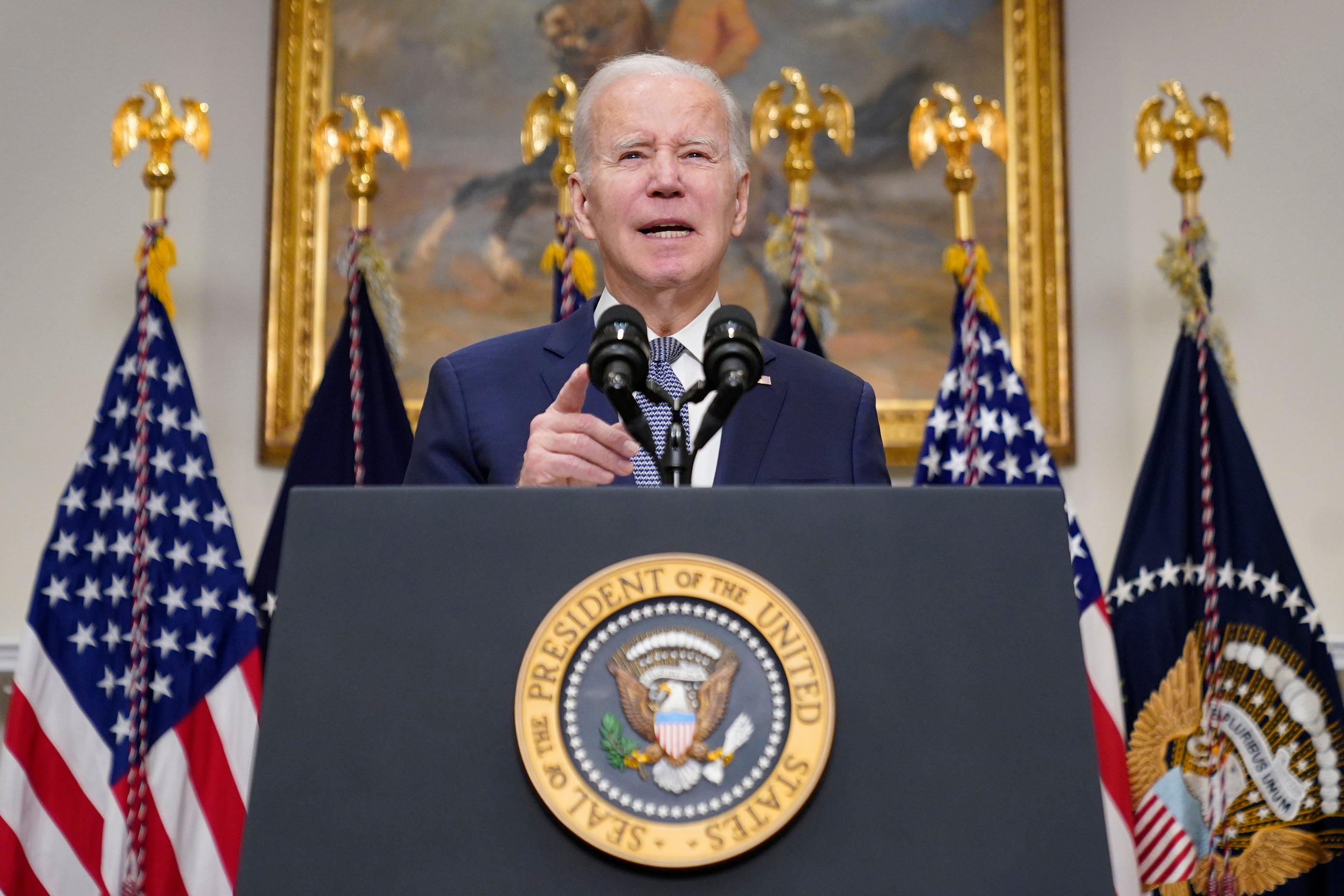The ghosts of the 2008 financial crisis loom over Biden’s response to Silicon Valley Bank
The 2008 financial crisis gave birth to our current hyper-polarized moment. Staving off a political backlash is just as important as preventing economic fallout


Your support helps us to tell the story
From reproductive rights to climate change to Big Tech, The Independent is on the ground when the story is developing. Whether it's investigating the financials of Elon Musk's pro-Trump PAC or producing our latest documentary, 'The A Word', which shines a light on the American women fighting for reproductive rights, we know how important it is to parse out the facts from the messaging.
At such a critical moment in US history, we need reporters on the ground. Your donation allows us to keep sending journalists to speak to both sides of the story.
The Independent is trusted by Americans across the entire political spectrum. And unlike many other quality news outlets, we choose not to lock Americans out of our reporting and analysis with paywalls. We believe quality journalism should be available to everyone, paid for by those who can afford it.
Your support makes all the difference.When President Joe Biden announced on Monday that people who had deposited their money in the now-unraveled Silicon Valley Bank would have their money available, he emphasised that American taxpayers would not be left on the hook.
Similarly, he added that the people responsible at the bank would need to be fired and that investors in Silicon Valley Bank would not be made whole, arguing that they took a risk and now have to suffer the losses.
On the surface, the Silicon Valley Bank collapse, as well as the closing of Signature Bank in New York, appears quite similar to the 2008 financial crisis that took banks like AIG to the brink and led to the collapse of Lehman Brothers. At the time, Mr Biden was a sitting senator running for vice president alongside Barack Obama. Both of them, as well as their White House opponent at the time, voted for the Troubled Assets Relief Program, or TARP, which became known as the “bailout” in the popular imagination.
But there are important distinctions between 2008 and today.
The 2008 crisis triggered a massive recession during which millions of Americans lost their jobs. Scores of people lost their homes due to the subprime mortgage crisis wherein those who had bought homes with adjustable rate mortgages saw their interest rates skyrocket.
Conversely, the job market today is more robust than 15 years ago. On Friday, the Bureau of Labor Statistics reported the economy added 311,000 jobs in February. Furthermore, the current government actions did not require Congress to act in the way they did to provide relief for financial institutions back then. The money used to shore up potentially impacted accounts came from money banks had contributed to the FDIC for such a calamitous event in hopes of preventing another “Too Big To Fail” moment.
But there is another reason why Mr Biden is taking a different approach: The 2008 financial crisis is very much responsible for the current political moment of hyper-polarized and populist politics. In his 2010 State of the Union Address, Mr Obama acknowledged how unpopular bail outs were, saying “I hated it. You hated it. It was about as popular as a root canal” – even though he did say it was “necessary.” Providing relief for financial institutions may have been unpopular, but doing so when people lost their homes eroded public trust and gave way to the more populist politics we see today.
The groundswell on the left to the financial crisis at the time did not organize as well as right-wing populism did (and lacked the funding). But it nonetheless gave rise to some of the progressivism we currently see. Senator Bernie Sanders went from an Independent gadfly to a darling of the left. Other young progressives like Alexandria Ocasio-Cortez came of age in the Great Recession and it informed their politics.
Similarly, Senate Majority Leader Harry Reid tapped Harvard Law School Professor Elizabeth Warren to lead the congressional oversight panel as part of TARP and her grilling of financial executives and government officials frequently went viral. Her brainchild, the Consumer Financial Protection Bureau, became part of the Dodd-Frank law that overhauled the financial system. Of course, Ms Warren eventually won a Senate seat in Massachusetts, making her a powerful voice for accountability from corporate America.
Anger about propping up the banks partially gave way to the Tea Party movement on the right. Many Republican voices, from Jim Jordan to Marco Rubio to Rand Paul, came to prominence after the crisis and the government’s response. That right-wing anger about government spending and Obama’s presidency morped into Trumpism. But, as others have noted, Donald Trump signed legislation that weakened oversight of financial institutions such as the beleaguered Silicon Valley Bank and many of his closest advisers including Treasury Secretary Steven Mnuchin, Gary Cohn and Steve Bannon were alumni of Goldman Sachs.
Mr Biden’s words and actions now seem to not only be about threading the needle between not rewarding bad actors while preserving the economy, but also preventing the type of political backlash that necessitated his return to the White House in 2020.



Join our commenting forum
Join thought-provoking conversations, follow other Independent readers and see their replies
Comments